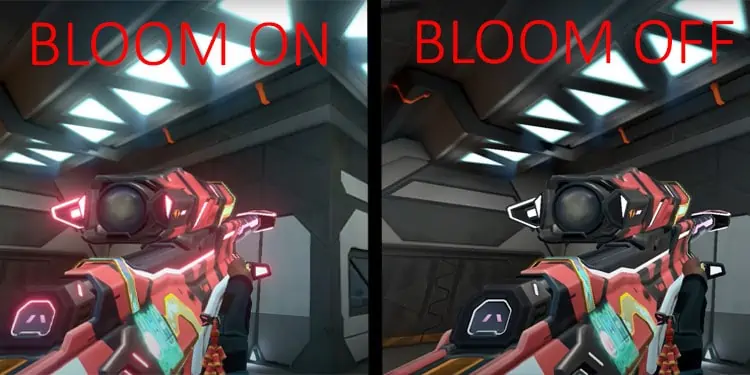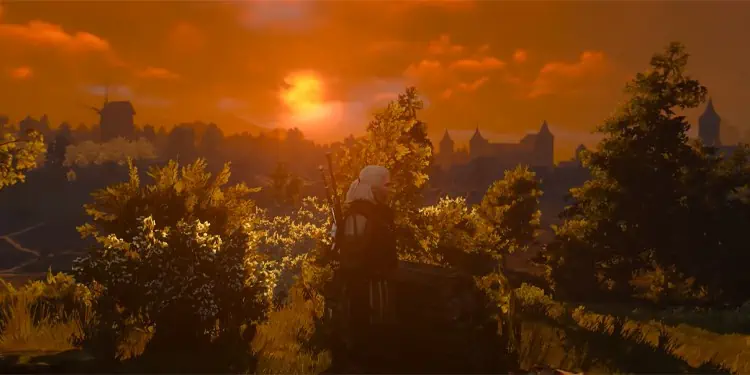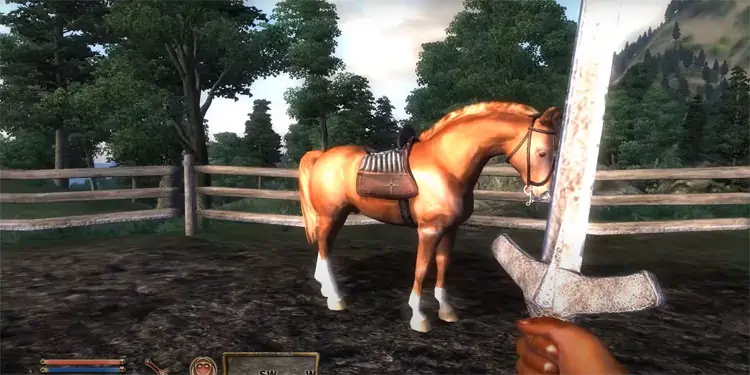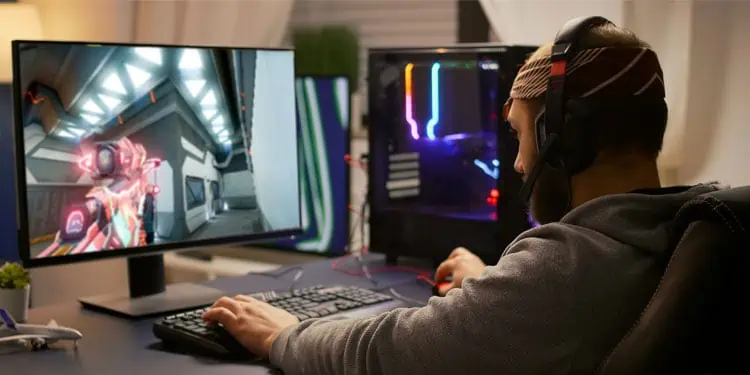In any game’s video setting, you might have encountered a setting named Bloom. This is a video game mechanic implemented into many games, both FPS (First Person Shooter) and single-player games.
The word bloom has two different meanings in a video game. In competitive or FPS games, it mostly deals with where the shots land when you press the shoot button. And the other meaning to bloom is in-game video/graphics settings.
This article explains the types of Bloom in both FPS and single-player games and a few of the queries that users might have about Bloom and whether it is good for games. So, without further delay, let us get right into it.
Bloom in Graphics Settings

Bloom is the level of reflection off a surface when a light source in a game touches an entity. Enabling Bloom gives a more realistic visualization of how light works in a video game. Any light source will emit more light, and any surfaces that the light from the source will give you an aura-like effect near the edges.
Bloom is supposed to make the game look more realistic. However, the game will seem too bright if there are multiple light sources, causing the artifacts to look unnatural. It also lessens the details users can see compared to when you disable Bloom.
In some games, you can also see that enabling Bloom takes you out of the gaming immersion. Game artifacts with irregular saturation of lights or objects glowing in an off-putting way are some disadvantages you may face when enabling Bloom.
The bloom effect you see on a scene also depends on the game you play. Games like The Witcher 3 and Red Dead Redemption 2 offer real-life bloom effects without taking away any of the game immersion. The Bloom will make the game look phenomenal if done right or horrendous if it over saturates the game world.
Does Enabling Bloom Take More Video Memory?
Enabling Bloom will make a surface reflect more light. This results in the surface having a glowy effect. The graphical effect that makes any surface more reflective does require some amount of graphical processing. Although insignificant, enabling Bloom will take slightly more video memory.
However, some sections of an artifact might lose their detail when you enable Bloom. The texture quality will seem blurry and lighter compared to when you disable Bloom. In this case, enabling Bloom will take less GPU power and use less video memory.
To sum it up, depending on the game and blooming techniques used, the game may require the same or more video memory.
Does Enabling Bloom Make Games Look Good?

Depending on the game you play, enabling Bloom will make the in-game work look more realistic or maybe even over-saturated. As mentioned above, some AAA games have mastered the art of implementing bloom effect in their applications.
Without making the game look unrealistic, games like Assassin’s creed origins, Witcher3, Battlefield2042 have mastered Bloom so well that the game’s lighting physics behaves like natural lights. However, not all games come with that good of Bloom.
In some games, it will seem unnatural, super saturated, and unrealistic. In these games, it is best to leave the Bloom off.

Bloom in FPS Games

In FPS games when using a DMR (Designated Marksman Rifle), you may have noticed that the first bullet you shoot when you are standing-still sometimes miss despite of perfect aim, no wind drag and vertical drop.
This is because of bloom. Bloom is a phenomenon where the bullet can hit anything within the proximity of the crosshair, regardless of where it is aiming. Where the shots land entirely depends upon luck or probability. It is a technique adapted to make the game seem more realistic.
The topic bloom in FPS games is quite controversial. Beginners may love it because even when you shoot rapidly, as long as the target is in the vicinity of the crosshair area, the shots may land sometimes. And you may even get a lucky kill.
But for seasoned players, bloom does more harm than good. Even if your aim is exactly on the target, you may not be able to hit those shots. This is why most player on the professional level absolutely disregard bloom.
When firing any weapon quickly, the crosshair cannot go back to its original state. And all the consecutive shots that comes after the first shots will land inside the expanded crosshair. The bullet will hit on random spots in the expanded cross-hair area. Not to confuse with bloom, this mechanics is called recoil. While the accuracy for recoil can be compensated by moving the mouse in opposite direction, for bloom, all you can do is count your luck.
Related Questions
Does Reticle Bloom Improve Accuracy?
Reticle bloom has nothing to do with accuracy. It is the dynamic expansion of reticle while firing your weapon. However, You can only hit your shots precisely once the crosshair shrinks to its original state.
Is Reticle Bloom and Recoil Same?
Recoil and reticle bloom may seem similar, but these terms go hand in hand. When the recoil increases, the reticle bloom effect will increase. Therefore, if you shoot continuously, the gun will have increased recoil, and its reticle will expand.
The bloom here, decreases the probability of landing a successful shot even less as the total area near and within the crosshair is increased. They do a similar act: reduce accuracy. However are two totally different entities.

